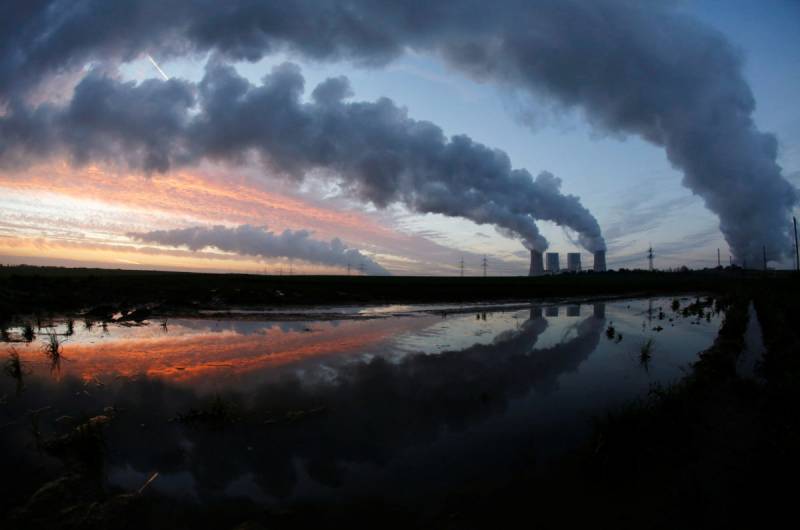In 1998, when countries around the world agreed to cut carbon emissions through the Kyoto Protocol, American fossil fuel companies offered their response, which included an aggressive strategy. to raise suspicion in public debates.
"Victory", according to a memo from the American Petroleum Institute, "will be achieved when the average citizen 'understands' (acknowledges) the uncertainties of climate science... Unless 'changes' climate' doesn't matter... There may never be a time when we can claim victory.
The memo, later leaked to The New York Times that year, went on to outline how fossil fuel companies could manipulate journalists and the broader public by muddying the evidence, by playing up “both sides” of the debate and by portraying those seeking to reduce emissions as “out of touch with reality.”
Read Also: Does The Sun Turn?
Nearly 25 years later, the reality of a changing climate is now clear to most Americans, as heatwaves and wildfires, rising sea levels and extreme storms become more common.
Last week, President Joe Biden announced moves intended to expand offshore wind, though he stopped short of declaring a national climate emergency. A Supreme Court ruling last month limited the federal government’s ability to regulate carbon emissions from power plants, meaning it will be up to a divided Congress to pass any meaningful limits on emissions.
Even as surveys show the public is generally more concerned about climate change, a significant number of Americans are even more skeptical of the scientific consensus.
"The tragedy of this is that all over social media you can see tens of millions of Americans who think scientists are lying, even about things that have been proven for decades.", historian Naomi Oreskes of Science at Harvard University, who has written about the history of misinformation about climate change. "They've been convinced by decades of misinformation. The denial is really deep.
And persistent. Last month, even during record heat in London, wildfires raging in Alaska and floods. Australia's historic flood, the Environmental and Science Policy Project, argues that all the scientists were wrong.
"There is no climate crisis," the group wrote in its newsletter.
Years before COVID-19 caused a wave of misinformation, or former President Donald Trump's lies about the 2020 election helped spark an uprising on the U.S. Capitol, the public Fossil fuel security companies have spent a lot of money undermining support for cutting emissions.
Today, even as these same companies promote investments in renewable energy, the legacy of all the climate misinformation remains.
It also contributes to broader skepticism from scientists, scientific institutions and the media reporting about it, a distrust expressed through doubts about vaccines or public health measures during the pandemic such as masks and quarantine.
"It's unboxing information," says Dave Anderson of the Institute for Energy and Policy, an organization that has criticized oil and coal companies for hiding what they know about the risks of climate change. Pandora's deviation. .
Beginning in the 1980s and 1990s, as the public became more aware of climate change, fossil fuel companies invested millions of dollars in public relations campaigns denouncing the evidence. increasingly support the idea of climate change. They fund research groups that are supposed to independently select science and promote fringe opinions designed to give the impression that there are two legitimate sides to the dispute.
Since then, the approach has softened as the impact of climate change has become more apparent. Now, fossil fuel companies are more likely to play up their supposedly pro-environmental record, touting renewables like solar and wind or initiatives designed to improve energy efficiency or offset carbon emissions.
Aggressive approaches to address climate change are now dismissed not on scientific grounds but on economic ones. Fossil fuel companies talk about lost jobs or higher energy prices — without mentioning the cost of doing nothing, said Ben Franta, an attorney, author and Stanford University researcher who tracks fossil fuel disinformation.
“We are living within an extended multi-decade campaign executed by the fossil fuel industry,” Franta said. “The debate (over climate change) was manufactured by the fossil fuel industry in the 1990s, and we are living with that history right now.”
The impact of that history is reflected in public opinion surveys that show a growing gap between Republicans and other Americans when it comes to views on climate change.
While the percentage of overall Americans who say they’re concerned about climate change has risen, Republicans are increasingly skeptical. Last year, Gallup found that 32 percent of self-identified Republicans said they accepted the scientific consensus that pollution from humans is driving climate change, down from 52 percent in 2003.
By comparison, the percentage of self-identified Democrats that say they accept that human activities are leading to climate change increased from 68 to 88 over the same time period.
Fossil fuel companies deny any intent to mislead the American public and point to investments in renewable energy as evidence that they take climate change seriously.
ExxonMobil CEO Darren Woods told members of Congress last fall that his company “has long acknowledged the reality and risks of climate change, and it has devoted significant resources to addressing those risks.” ExxonMobil’s public claims about climate change, he said, “are and have always been truthful, fact-based … and consistent” with mainstream science.
Asked about its role in spreading climate misinformation, a spokesman for the Southern Company pointed to recent expansions in renewable energy and initiatives meant to offset carbon emissions.
The American Petroleum Institute did not respond to messages seeking comment for this story. The trade group was behind the 1998 “victory memo” that laid out the industry’s strategy to respond to concerns about climate change.
That memo is one of several documents cited by climate activists and some Democratic Lawmaker who say they could be used to hold them legally responsible for misleading ratepayers, investors or the general public.
“It’s time for these companies to answer for the harm they have caused,” said Rep. Ro Khanna, D-California.
Republicans, however, have said Democrats want to focus on climate misinformation to distract from failed environmental policies that are driving up gas and energy costs.




